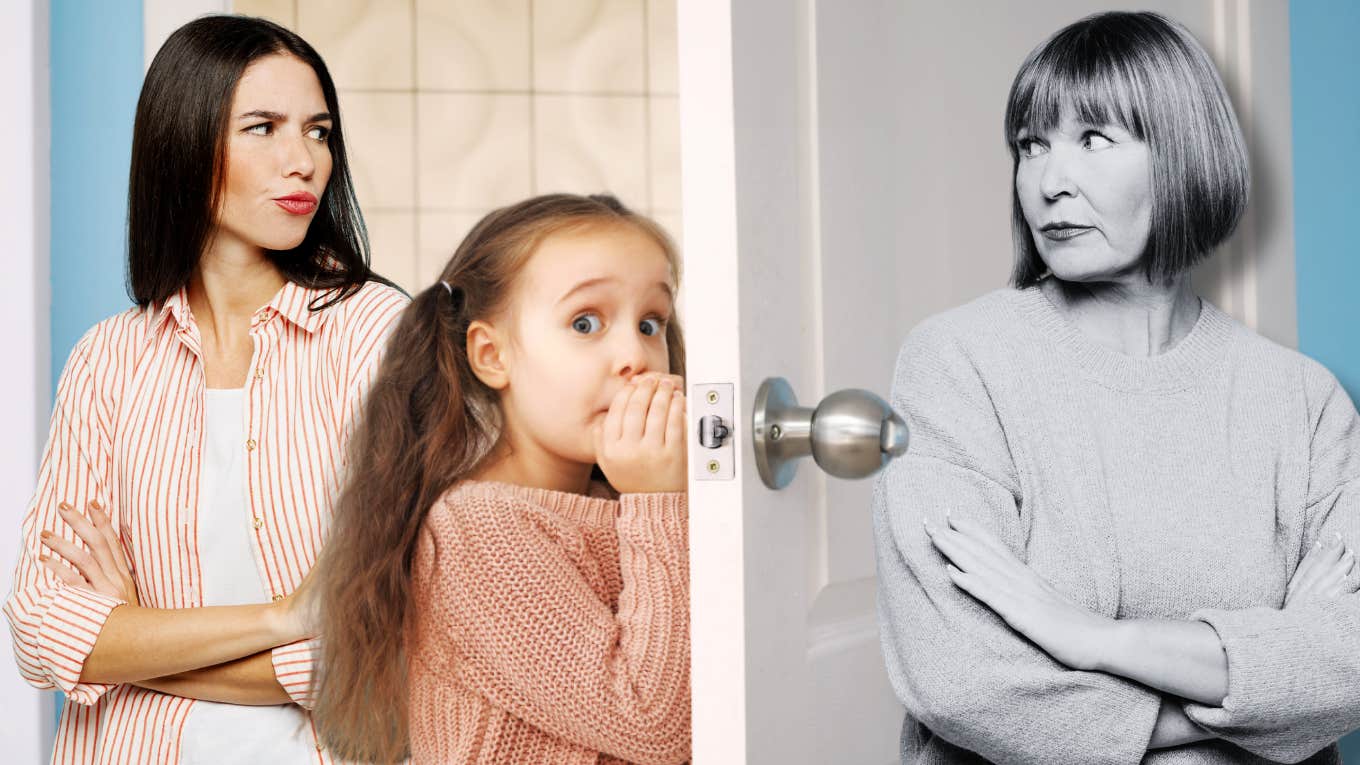4 Signs A Grandparent Has Big Trouble With Boundaries, According To Experts
They're your parents, but now they act like they're your child's parent too.
 ViDI Studio | Shutterstock, pixelshot | Canva
ViDI Studio | Shutterstock, pixelshot | Canva Your parents love you. They raised you well, but now you have children and your parent might have a challenge understanding the difference between a parent's and a grandparent's role in the family.
Here are 4 signs a grandparent has trouble with boundaries, according to YourTango experts:
1. They ignore reasonable requests
When a grandparent continues to fixate on a topic or dynamic you have previously addressed, likely, they have not developed the skill of respecting boundaries. We can tell someone can handle boundaries when they receive our feedback or limits with clear communication and changes in behavior. If we have said for instance, "Jacob has asked that we no longer call him Jakey, because he prefers us to call him Jake, and a grandparent says "But he will always be Jakey to me", we are learning this grandparent needs some more work to understand and respect boundaries.
— Eli Harwood, Counselor/Therapist
 fizkes via Shutterstock
fizkes via Shutterstock
2. They wear the disguise of support
A sign a grandparent may have difficulties with boundaries is if they often "accidentally" show up unannounced at their grandchild's activities, subtly inserting themselves into events and decisions that typically wouldn't involve them, all under the guise of being supportive or helpful.
— Erika Jordan, Dating Coach / NLP Practitioner
3. They have proven to be untrustworthy
I’ve been a parent for over six years now. This baby is my third. Becoming a parent didn’t help me become sympathetic to my parents. Instead, it showed me why I shouldn’t let them be in my children’s lives at all.
One of my earliest memories of my mother is of her slapping me across the face. I was three or four. I don’t know what I did, but the wrong thing. I started crying, and she told me she was sorry and hugged me. That was one of the only times, in my entire life, I ever remember her apologizing for hurting me.
—Tara Blair Ball, Author
4. They use a sense of entitlement
Understandably, grandparents would want to glom onto their grandkids every chance they get, especially if they don't get to see them as much as they would like. But grandparents need to remember they're not entitled to their grandchildren, as much as they may feel otherwise.
As Renee Bledsoe put it, "Our generation, we love the idea of amazing, doting, loving [grandparents who] want to be present, want to be a part of a community and village... but we're not here for the outdated rules that put us under this thumb of insane expectations that put mother-in-laws, grandmas, and grandparents at the center of a universe that truly needs to focus on our babies."
— John Sundholm, Writer, Editor and Social Media Personality
Society moves forward while learning, adapting, and changing. The forward progression of society directly affects parenting and parental decisions, which might conflict with the opinions of the grandparents. What was the norm for one generation can become unacceptable for the grandchildren of that generation? Caught between are the parents who have one foot in the parenting style they were raised with and the other foot in the parenting style that will benefit their children the most. Sometimes, the best for the child is a boundary for the grandparent.
Will Curtis is a writer and editor for YourTango. He's been featured on the Good Men Project and taught English abroad for ten years.

